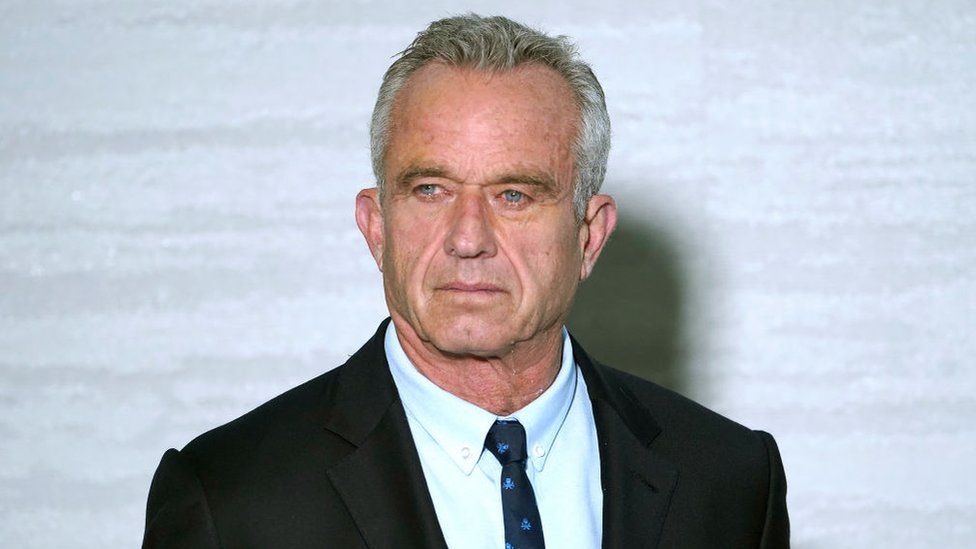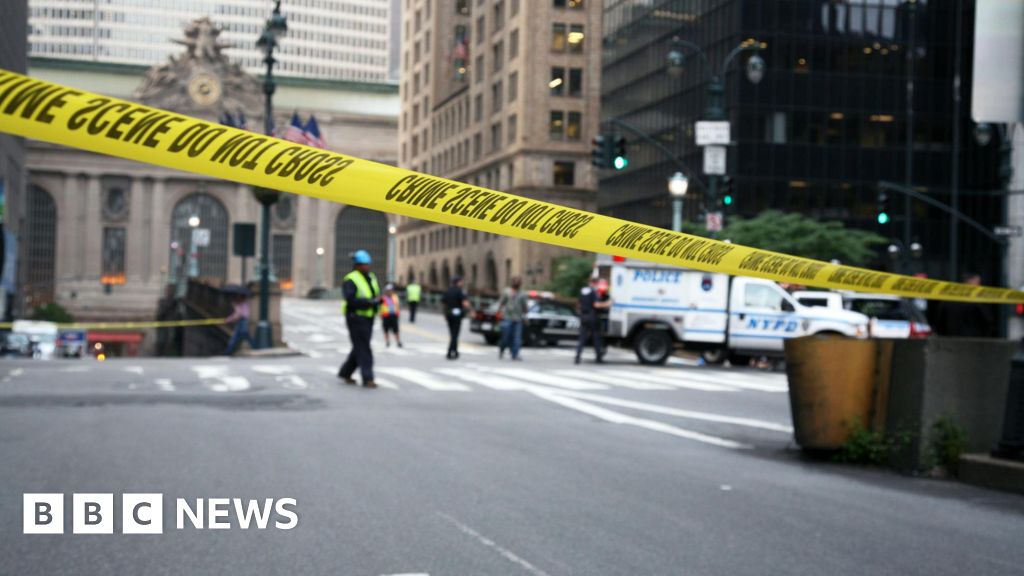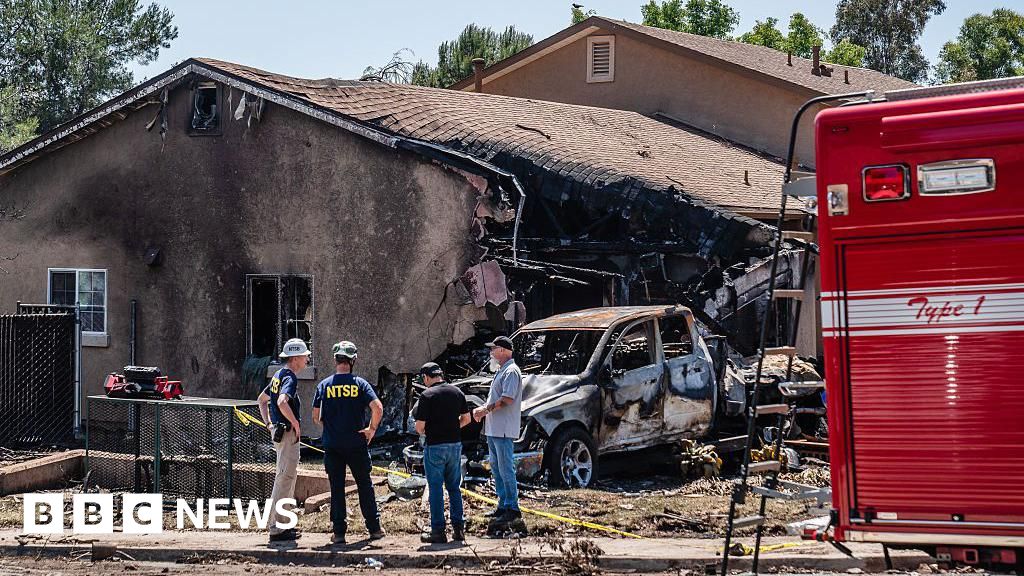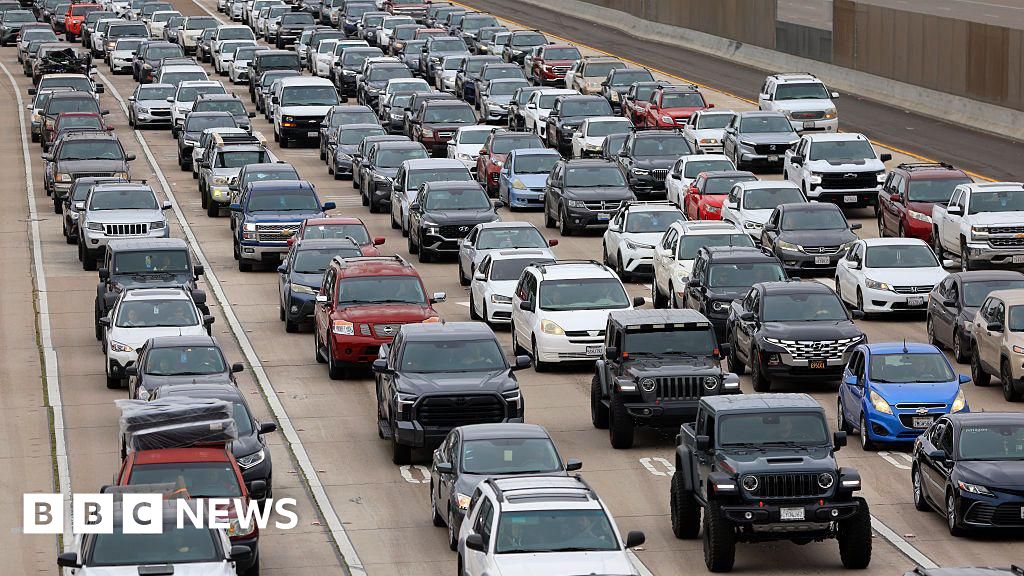ARTICLE AD BOX
 Image source, Getty Images
Image source, Getty Images
Independent candidate and anti-vaccination activist Robert F Kennedy Jr has qualified for the 2024 presidential ballot in his first state.
Elections officials in Utah said Mr Kennedy Jr had collected the 1,000 signatures necessary for ballot access.
He still faces a long battle to qualify in the other 49 US states and the District of Columbia.
Mr Kennedy Jr is part of a Democratic political dynasty. He counts a president and senator among his uncles.
Last year he initially planned to run for the Democratic Party nomination. But the nephew of President John F Kennedy and son of Robert F Kennedy later withdrew that bid and announced an independent run.
Mr Kennedy Jr is one of several independent and third-party candidates looking to make an impact on the 2024 race, where major party front-runners Joe Biden and Donald Trump both have low favourability ratings. The Green and Libertarian parties are expected to field candidates, a centrist group called No Labels is considering floating a candidate, and philosopher and left-wing activist Cornel West is also making an independent run.
Without the backing of a political party, Mr Kennedy Jr's campaign is in the process of navigating a huge variety of state rules to get his name on the ballot.
In Louisiana, for instance, the process is as simple as nominating a slate of eight volunteer electoral voters and paying a $500 fee.
In California, by contrast, prospective candidates must collect nearly 220,000 signatures - 1% of the state's registered voters.
Utah had one of the nation's earliest deadlines for collecting signatures - 8 January. But Mr Kennedy Jr's campaign successfully sued to delay that deadline, arguing that it was unconstitutionally restrictive.
Speaking at a news conference in Salt Lake City on Wednesday, Mr Kennedy Jr criticised what he called "undemocratic lock that the major political parties have on this process".
"There's so many obstacles that are put in our way," he said, noting that his campaign planned to spend $15m (£11.9m) on ballot access efforts. He also criticised decisions in Colorado and Maine that would take Donald Trump off the ballot in those states.
"I want to beat Donald Trump, but I want to beat him fair and square in an election where everybody gets a vote for who they want to vote for," he said.
Bernard Tamas, an associate professor at Valdosta State University and author of The Demise and Rebirth of American Third Parties, says that ballot access laws have generally gotten tougher over the last century or more. That is a hurdle that minor parties have adjusted to, he says, but independent candidates have a tougher road.
"Robert F Kennedy Jr doesn't have a third party behind him, and it's not clear how much of a structure he has to actually do the work" of collecting signatures, he says. "It's just not clear at the moment in how many more states he'll be able to qualify for ballot access."
Mr Kennedy Jr had a career as an environmental lawyer before becoming director of Children's Health Defense, an anti-vaccine activist group which saw a significant boost to its funding during the Covid pandemic.
Nationwide, he is polling around 13% according to the average compiled by the website RealClearPolitics.
But it's unclear how this might eventually impact the general election. Many third-party voters would not vote for either major party - or vote at all. And while some polls indicate Mr Kennedy Jr's presence in the race helps Mr Trump, others show he might draw support from the right, benefiting Mr Biden.
Mr Tamas says Mr Kennedy Jr's campaign lacks a clear focus or galvanising issue which tends to distinguish successful third-party campaigns - ones which may not win, but which can change the overall course of US politics.
"A lot of Americans are theoretically supporters of third parties, but as you get closer to the election they go back to one of the major parties," Mr Tamas says.
Watch: RFK Jr declares 'independence' from America's two political parties

 1 year ago
36
1 year ago
36








 English (US) ·
English (US) ·